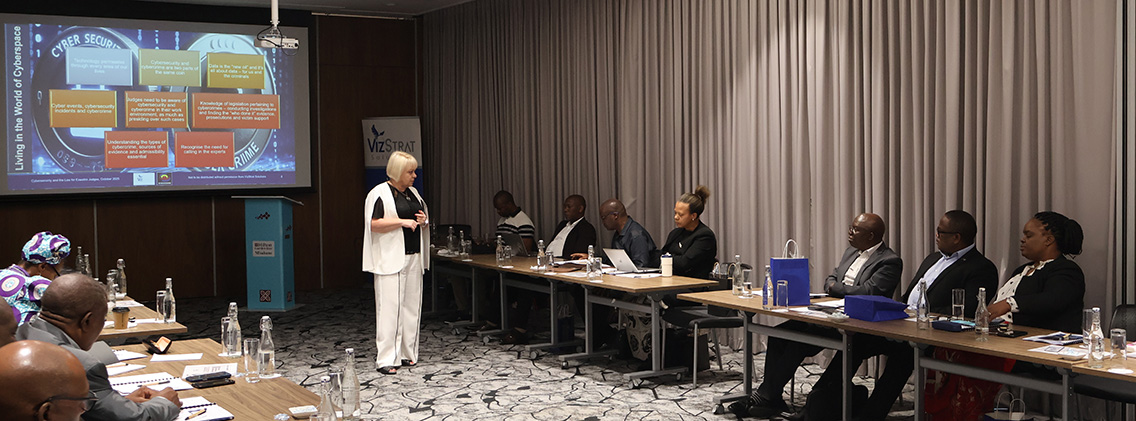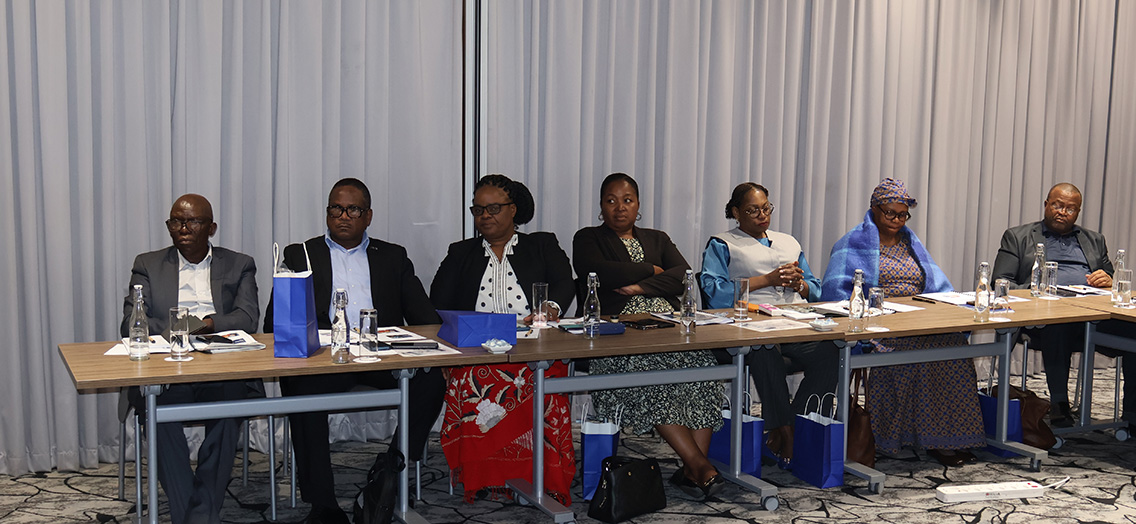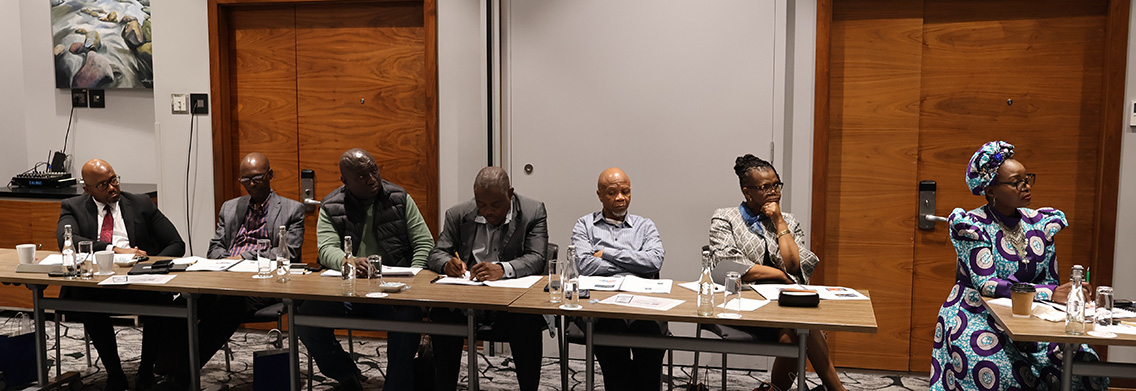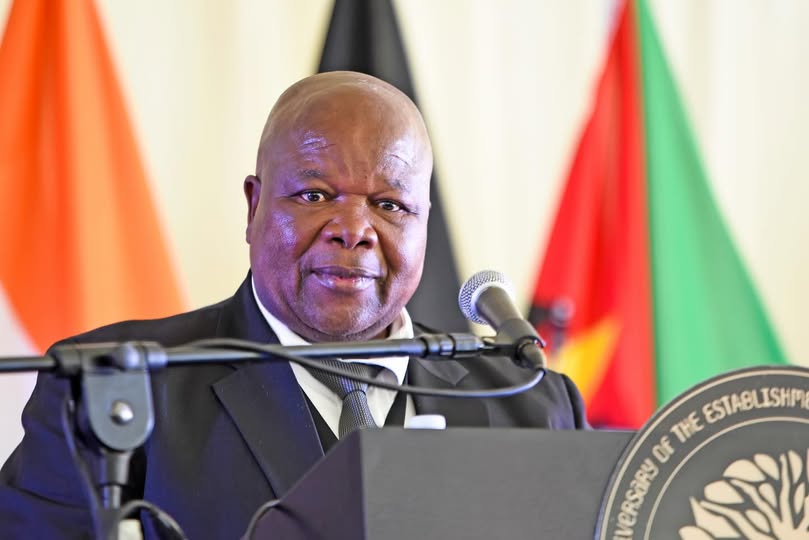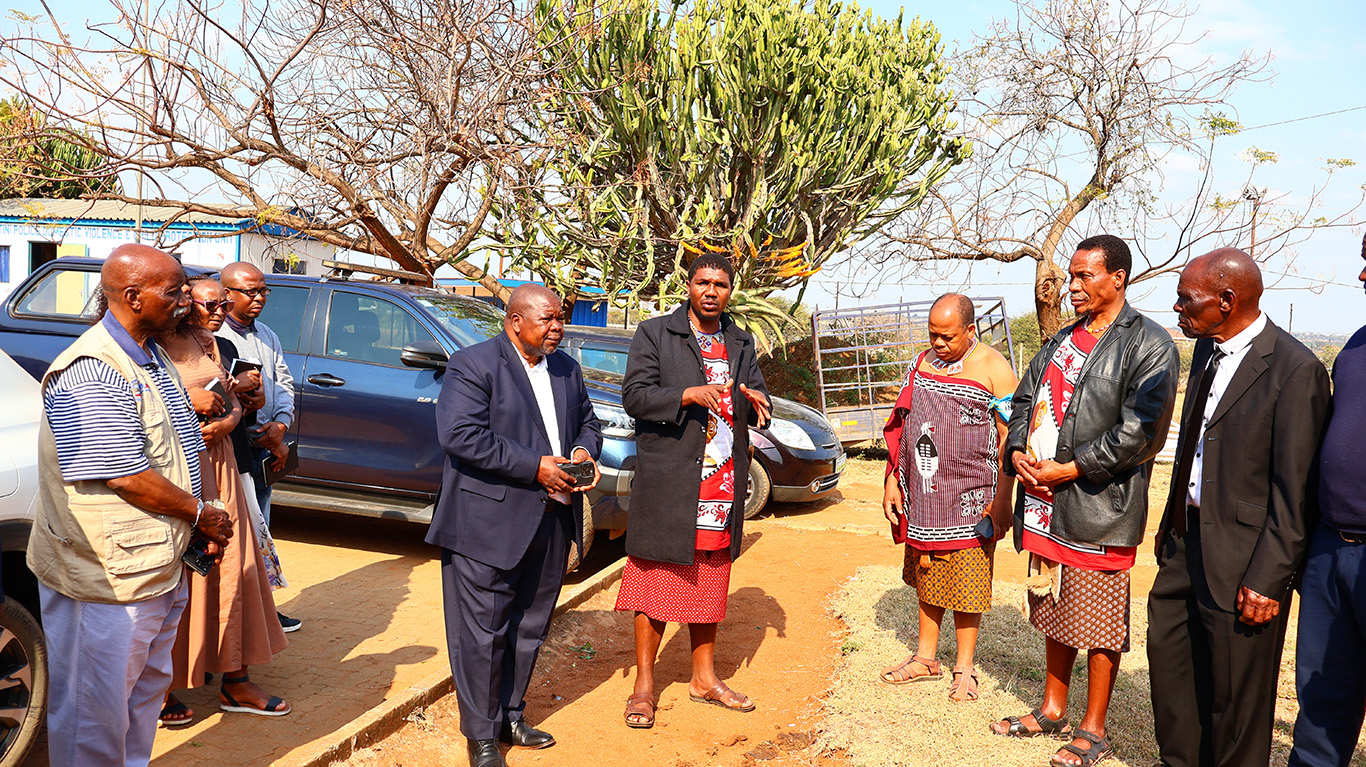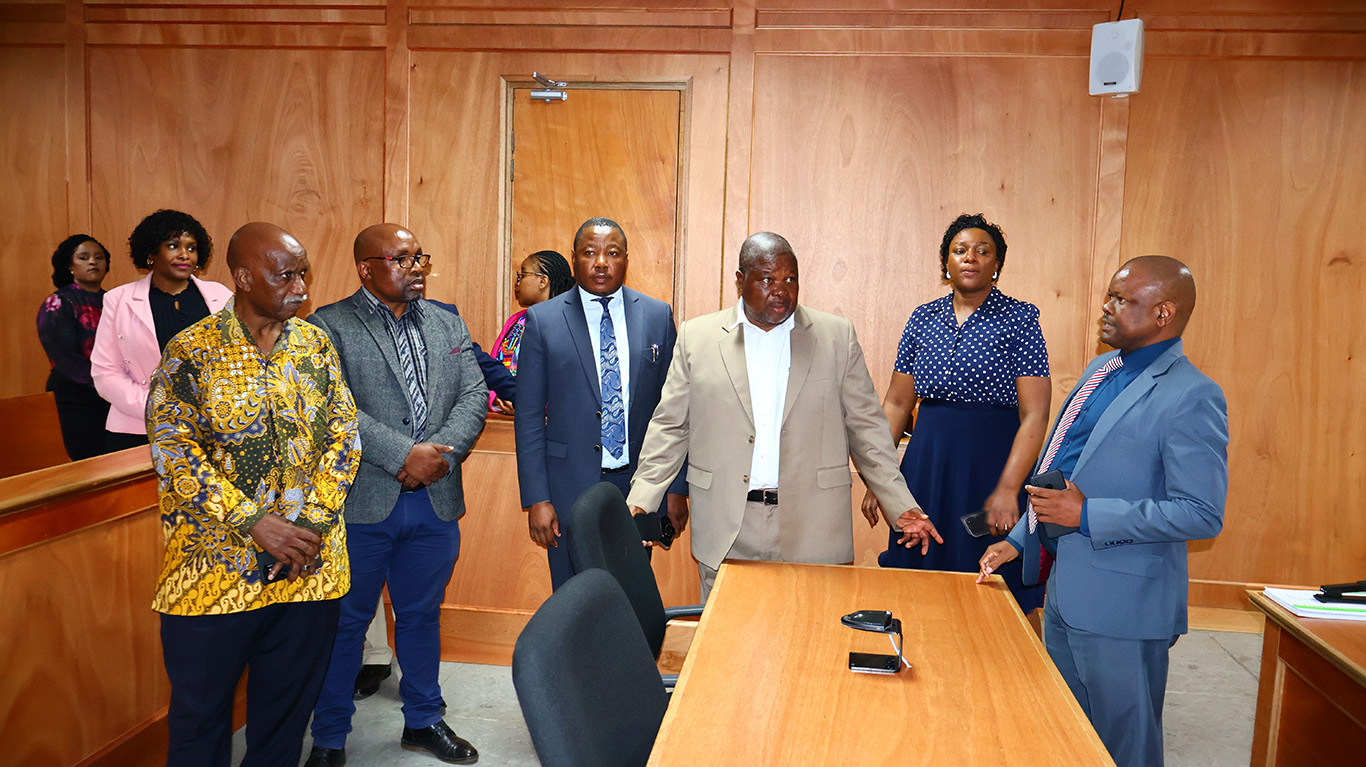Latest News
Recent announcements, judgments, and events from the Judiciary of Eswatini.
Equipping Justice: Eswatini’s Judiciary Strengthens Capacity in Cybercrime Adjudication
The Judiciary of Eswatini, in partnership with the Ministry of Information, Communications and Technology (ICT) and the Eswatini Communications Commission (ESCCOM), recently participated in a two-day national cybercrime training workshop. The initiative forms part of the country’s broader effort to enhance judicial capacity to handle emerging cyber-related offenses under the Computer Crime and Cybercrime Act, 2022, and the Data Protection Act, 2022. The program aligns with the National Cybersecurity Awareness Month, reinforcing Eswatini’s commitment to safeguarding citizens, businesses, and critical infrastructure from digital threats.
Hon. Chief Justice Bheki Maphalala Addresses Southern Africa’s Judiciary at Constitutional Court of South Africa Celebration
The Honourable Chief Justice of the Kingdom of Eswatini, Bheki Maphalala, delivered a keynote address during the celebration of a significant mileston...
Judiciary Showcases Virtual Remand Court System to UNDP Resident Representative
The Judiciary of Eswatini, in collaboration with the United Nations Development Programme (UNDP), continues to strengthen access to justice through th...
Judicial Service Commission Inspects Court Infrastructure Across Eswatini
The Judicial Service Commission (JSC) has embarked on a nationwide inspection of court infrastructure in Eswatini. The exercise is aimed at assessin...
Showing 1–4 of 4
Recent Judgments
Notable recent decisions from Eswatini courts.
Power Cube Branding v SUFIAW (920 of 2023) [2025] HIGH COURT 22 Sep 2025
High CourtDavinscot Clothing Swaziland v Eswatini Investement Promotion Authority and others (2511 of 2024) [2025] HIGH COURT 16 Sep 2025
High CourtMaziya And Another v University of Eswatini Pension Fund (2406/2024) [2025] HIGH COURT 03 Sep 2025
High CourtRecent Speeches
Chief Justice Maphalala Calls for Strengthened Judicial Independence and Reform of Global Governance at SEACJF Conference
08 Oct 2025
The Honourable Chief Justice of the Kingdom of Eswatini and Chairperson of the Southern and Eastern Africa Chief Justices’ Forum (SEACJF), Honourable Chief Justice Bhekie M. C. Maphalala, delivered powerful remarks during the 2025 SEACJF Conference and Annual General Meeting held in Gaborone, Botswana. In his address, Chief Justice Maphalala emphasized the importance of judicial independence, accountability, and the rule of law as the foundation of democratic governance. He also called for reforms to the United Nations Security Council, condemned ongoing injustices in Gaza, and urged African nations to pursue economic liberation and unity in the face of modern neo-colonialism.
Chief Justice Bhekie Maphalala Addresses the Commemoration of the Constitutional Court of South Africa
20 Jun 2025
Honourable Chief Justice Bhekie Maphalala of the Kingdom of Eswatini, and Chairperson of the Southern and Eastern Africa Chief Justices’ Forum (SEACJF), delivered a keynote statement during the commemoration of the Constitutional Court of South Africa on 20 June 2025. He commended the Constitutional Court for its role in promoting human rights and freedoms while raising concern over global failures to uphold international justice and equality. The Chief Justice highlighted the ineffectiveness of the United Nations Charter, the persistent impacts of neo-colonialism on Africa, and the troubling rise of political interference in judicial independence across the continent. He called for the protection of judges, the strengthening of judicial independence, and the advancement of true African-led justice systems.
The Role of the Judiciary in Preventing Conflicts and Advancing Human Rights in Africa
12 Feb 2025
Honourable Chief Justice Bhekie Maphalala delivered a statement in Arusha, Tanzania, highlighting the central role of the judiciary in preventing conflicts that often lead to gross human rights violations. He emphasized the duty of domestic courts to uphold constitutional protections, provide accountability, and deliver justice to victims of atrocities. While acknowledging the contributions of regional and international institutions such as the African Court on Human and Peoples’ Rights and the International Criminal Court (ICC), the Chief Justice urged for stronger African-led solutions to address the continent’s challenges. He called for strengthening the African Union, regional courts, and continental justice systems to build a sustainable culture of human rights and justice across Africa.

